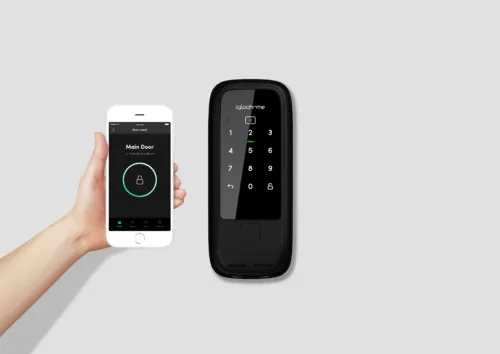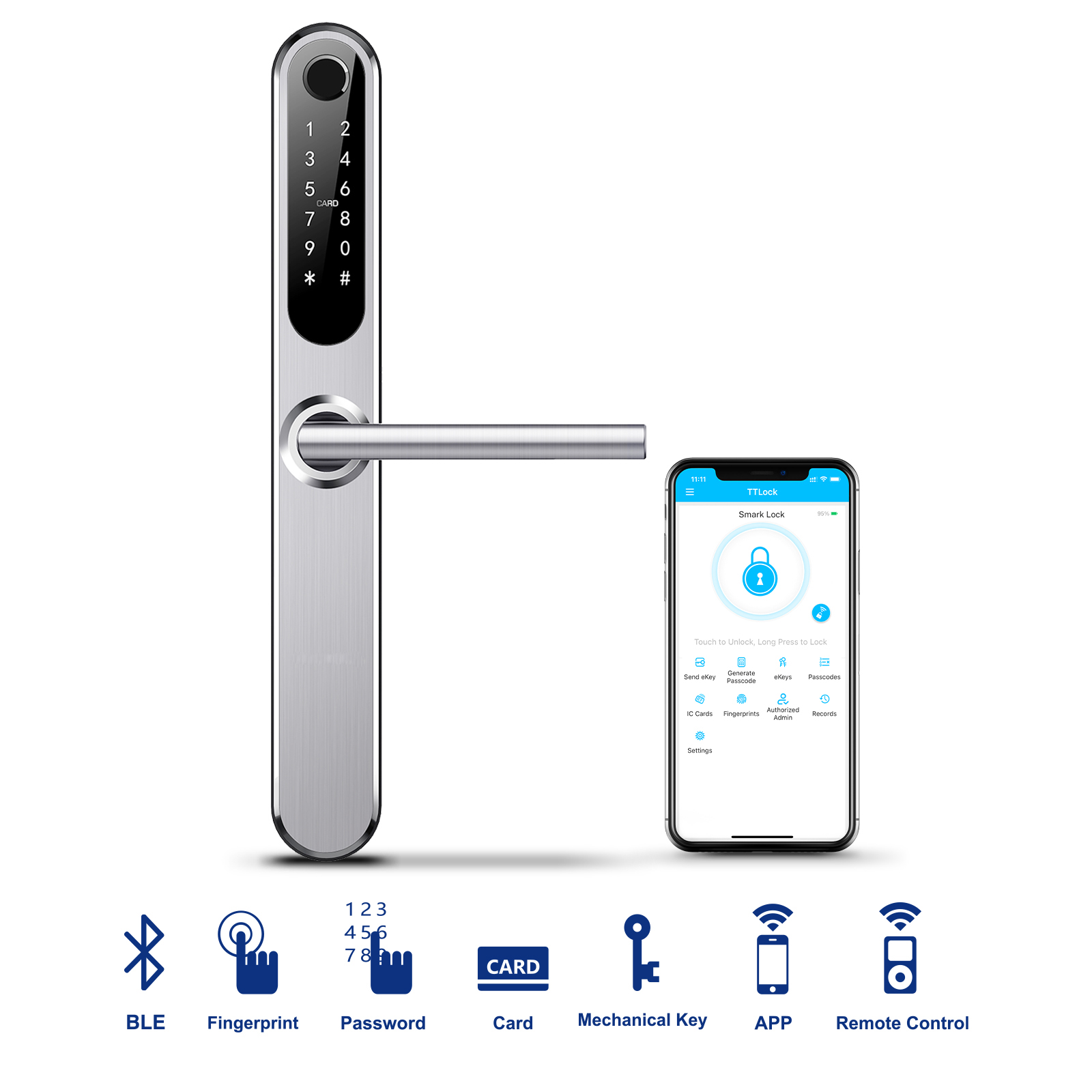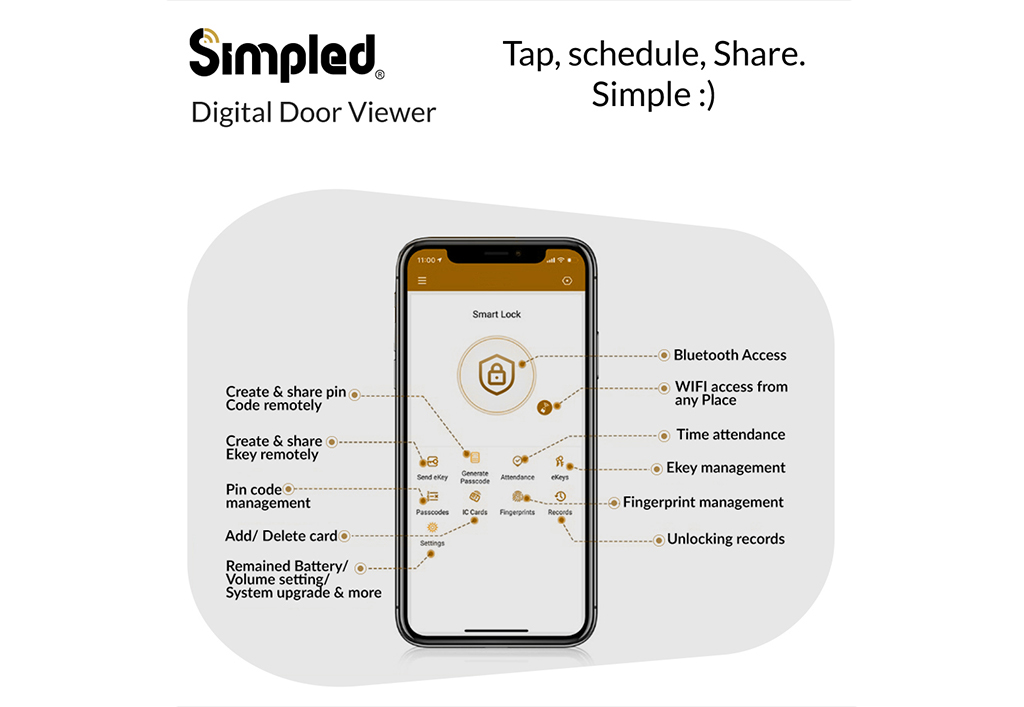The Impact of Smart Locks on Home Insurance What You Should Know

How do smart locks affect home insurance premiums?
Smart locks can impact home insurance premiums, with some insurers offering discounts for homes with these devices installed. The level of discount varies depending on the insurer and type of lock. Some insurers may require proof of installation before offering a discount.
Smart locks are designed to enhance security measures, and as such, some insurance companies view them as an added safety feature that can reduce the risk of theft or damage. However, not all insurance companies offer discounts for smart locks, and the discount level can vary significantly.
Homeowners should also check if their insurance policy covers damage caused by forced entry attempts through no smart lock doors. Smart locks cannot guarantee total security, so it's essential to ensure that your insurance policy covers all potential risks.
When considering upgrading to a smart lock system, it's essential to research different brands and consult professionals to ensure maximum satisfaction. The cost difference between traditional locking mechanisms and smart locks can vary significantly, so it's crucial to consider individual needs and preferences before investing.
While smart locks can potentially lower home insurance premiums, checking with your insurer first is crucial. Homeowners should also consider other factors, such as cost, security measures, and potential drawbacks associated with new technologies, when deciding whether to upgrade to a smart lock system.
What are the benefits of installing smart locks in your home?
Smart locks can improve home security by providing remote access control and monitoring capabilities. Homeowners can use their smartphones to lock and unlock doors, monitor activity, and receive alerts when someone enters or exits the property. Smart locks are available in different types, including keypad, biometric, and Bluetooth-enabled models.
In addition to improving security measures, smart locks offer enhanced convenience compared to traditional locking mechanisms. Temporary access codes allow homeowners to grant access to guests or service providers without physically handing over a key. Geofencing capabilities automatically unlock the door as you approach it, eliminating the need to fumble with keys or enter a code manually.
Furthermore, installing multiple security measures like CCTV cameras and smart locks can help reduce your premium further than just having one single device alone. Insurance companies view these added safety features as a way to reduce the risk of theft or damage.
However, it's essential to consider potential drawbacks associated with new technologies when deciding whether to upgrade to a smart lock system. Smart locks come at a higher cost and may pose cybersecurity risks if not properly secured. Not all insurance companies offer discounts for smart locks, so it's crucial to check with your insurer first.
Smart locks offer several benefits that enhance both security measures and convenience factors. Homeowners should research different brands and consult professionals to ensure maximum satisfaction when upgrading to a smart lock system.
What types of smart locks are available on the market?

Smart locks have become increasingly popular in recent years, and several types are available on the market. Keypad smart locks allow homeowners to enter a code to unlock the door instead of using a physical key. This type of lock is convenient for households with multiple occupants who need access at different times.
Biometric smart locks use fingerprints or facial recognition technology to grant access to authorised individuals only. This type of lock offers enhanced security measures compared to traditional locking mechanisms. However, it can be more expensive than other types of smart locks.
Bluetooth-enabled smart locks connect wirelessly with mobile devices for easy operation from anywhere at any time. Homeowners can use their smartphones to lock and unlock doors, monitor activity, and receive alerts when someone enters or exits the property. This type of lock is convenient for households with busy schedules or frequent travellers.
Homeowners should also consider the compatibility of their smart lock with other home automation systems like Alexa or Google Assistant. This allows for seamless integration with other devices and enhances convenience factors further.
Choosing the right type of smart lock depends on individual needs and preferences. Keypad, biometric, and Bluetooth-enabled models offer different benefits and drawbacks. Homeowners should research different brands and consult professionals to ensure maximum satisfaction when upgrading to a smart lock system that fits their lifestyle perfectly.
Do I need professional installation for my new smart lock?
Most smart locks come with batteries that need replacing every few months, and homeowners must keep track so that it doesn't run out when needed most. The installation process varies depending on the type of lock chosen, but most are relatively easy to install without professional assistance. However, some insurance providers may require homeowners to have a professional install their smart locks to qualify for discounts.
It's essential to ensure the smart lock is compatible with the existing door hardware before installation. Homeowners should read the manufacturer's instructions carefully and follow them step-by-step to avoid damaging the lock or door. Regular maintenance is also crucial; homeowners should update the firmware whenever necessary to ensure maximum security.
While professional installation may be necessary in some cases, many smart locks are designed for easy DIY installation. Homeowners can save money by installing the lock themselves and enjoy a smart lock system's added convenience and security measures.
While some smart locks may require professional installation to qualify for discounts from insurance providers, most are easy to install without professional assistance. Homeowners should read the manufacturer's instructions carefully and maintain their smart locks regularly to enjoy maximum benefits.
How do smart locks integrate with existing home security systems?
Smart locks can be integrated into existing security systems, providing additional protection against theft and burglary. With smart locks, homeowners can monitor who enters and exits their property remotely and in real-time. This feature is particularly useful for those with a monitored alarm system installed in their home. Insurance companies may offer lower premiums for homes equipped with monitored alarm systems that include smart locks as part of the package.
Homeowners renting out their property through Airbnb or similar platforms could benefit from installing Smart Locks since they can grant access remotely instead of meeting guests in person. This feature provides added convenience and eliminates homeowners needing to be physically present when guests arrive.
It's important to note that installing a Smart Lock does not guarantee complete safety; homeowners still need to take precautions such as securing windows, using motion-activated lights, and keeping valuables hidden away from plain sight. However, using smart locks provides an added layer of security and peace of mind.
Integrating smart locks into existing home security systems is becoming increasingly popular due to their added convenience and security measures. Homeowners should research different brands and consult professionals to ensure maximum satisfaction when upgrading to a smart lock system that fits their lifestyle perfectly.
What should I consider before purchasing a smart lock?
When considering purchasing a smart lock, there are several factors to consider. Homeowners should research different types of smart locks and compare prices before making a purchase decision. Since some insurers prefer this, it's also important to ensure that high-quality deadbolts are installed alongside these electronic locking mechanisms.
Some insurers might not cover damages caused by faulty electronic locking mechanisms without evidence of forced entry. Therefore, choosing a reliable brand is crucial and ensuring the device is installed correctly.
The cost savings from installing a smart lock might not be significant enough compared to other factors, such as location-based risks like natural disasters. However, homeowners looking to improve their home's security while potentially reducing insurance premiums should consider investing in a quality smart lock system.
Before purchasing a smart lock, homeowners should check with their insurer about discounts for installation proof or compatible devices. They must also maintain the system regularly, including updating firmware when needed, and remember that multiple layers of security measures are always better than relying solely on one device alone. Purchasing a smart lock can enhance home security and provide added convenience. However, homeowners must carefully consider the brand, installation process, and compatibility with existing home security systems before purchasing.

